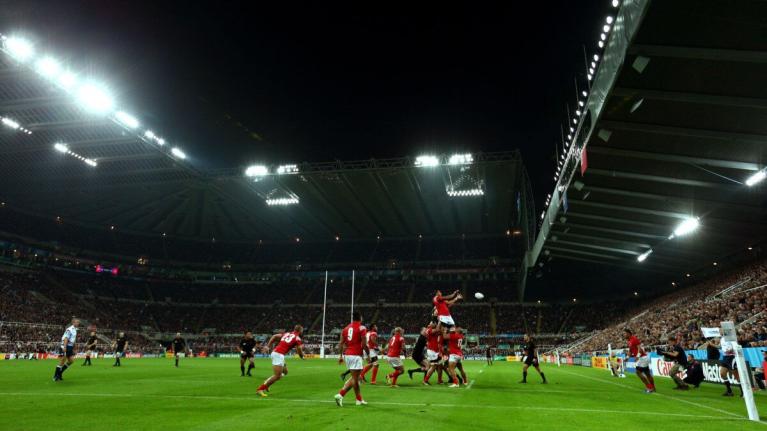'Maybe Epi Taione could look at himself in the mirror and look at how he ran that union when he was president'

A former senior executive at World Rugby has criticised Dan Leo's 'Oceans Apart' documentary, which sought to lift the lid on the many issues affecting rugby in the Pacific islands.
Mark Egan, who stepped down as head of competitions and performance at World Rugby after 18 years with the organisation, took issue with what he sees as the one-sided argument put forward by the documentary which was released earlier this year. The film evoked an enormous reaction online and inspired a call for change in how the game is governed by World Rugby.
Egan however, as part of wide-ranging interview with Owain Jones in the TheXV.rugby on the game, takes the film to task for pitching World Rugby as the villain of the piece.
'I did see ‘Ocean’s Apart’ because I’ve been working with the Islanders for nigh on 20 years. I visit Tonga, Samoa and Fiji regularly – I’ve seen workings on the ground; I’ve visited union officials, coaches, locals and I’ve seen the facilities."
The former lock, who played for Kolbe Steelers in the 1990s, before becoming a rugby administrator, questioned the governance of the unions, and pinpointed two former union officials who appeared in Oceans Apart.
"I thought it was very one-sided," said Egan. "When they interviewed Vincent Fepuleai, the CEO of Samoa Rugby, what they didn’t mention was the interview took place in the £1.5million facility World Rugby funded. Maybe Epi Taione, the former President of the Tongan Rugby Union, could look at himself in the mirror and look at how he ran that Union when he was president.
"There are some good administrators in the Island Unions who do an incredible job in very challenging circumstances, but there are some well-documented issues in the media about how some of the Unions are run, especially Tonga. Fiji, Samoa and Tonga are not first-world economies, they have different economic challenges to say England, Wales, Australia and New Zealand. Unless you go there and meet the people, it’s difficult to really get a picture looking at a documentary like that.
Egan does admit it raised valid issues about the game and the Pacific islands.
"Yes, of course, there’s no question about that. World Rugby are certainly aware of them. When the teams come together for international competition they need more support.
"The problem is they don’t have the commercial revenues coming in through the door because they don’t have regular international competition. When they bring the teams together for the autumn Tests, they need to have money to pay the players and install high-performance support.
"The fact is, World Rugby cannot directly pay the players. It can go towards support staff, facilities and technical support but they need to do it through their commercial programmes to pay the players, which is difficult because of the lack of regular competition."
Latest Comments
Canham is the only genuine 5, but the best lineout skipper is Liam Wright from 6! LSL could do with a bit more time doing the job too…
Go to commentsHi Andrew, No final in 1976. BOB won eight and Drew one of 10 games. Finals introduced in 92. Two fine teams 76 and 24.
Go to comments